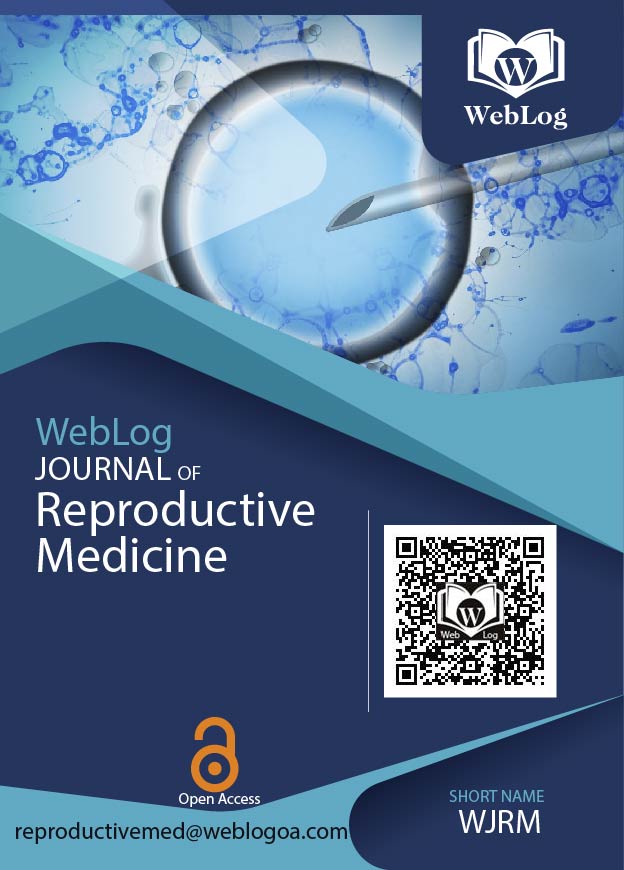WebLog Journal of Reproductive Medicine

- Pubmed NLM Abbr: WebLog J Reprod Med
- Website: www.weblogoa.com/journals/weblog-journal-of-reproductive-medicine
- E-ISSN: NA
- Category: Clinical and Medical
- Issue Regularity: Annual
- Review Process type: Double Blind
- Plagiarism checker: Being monitored for originality using standard detection software
- Language: English
- Ability to collect research papers: Worldwide
- Indexing In: Multiple scholarly databases for global discoverability
- Organized by: WebLog Open Access Publications
About WebLog Journal of Reproductive Medicine
WebLog Journal of Reproductive Medicine is an open access, multidisciplinary, double-blind, meticulously peer-reviewed online journal. The primary objective of the WebLog Journal of Reproductive Medicine is to disseminate scientific knowledge that advances our understanding of the field and improves the well-being of humans.
A surgical specialization within obstetrics and gynecology called reproductive endocrinology and infertility assists physicians and surgeons practicing reproductive medicine in managing hormonal functioning in relation to reproduction and infertility. Reproductive endocrinology, hormonal dysfunctions outside of infertility, and infertility treatment are the main areas of attention for this field. Prior to undergoing sub-specialty training in reproductive endocrinology, reproductive endocrinologists receive specialty training in obstetrics and gynecology. An additional specialty for a doctor practicing obstetrics and gynecology or urology is reproductive surgery, which focuses on treating anatomical conditions that impact fertility.
Article types that can be accepted in WebLog Journal of Reproductive Medicine include Case Blogs, Case Reports, Case Series, Clinical Images, Editorials, Letters to the Editor, Short Communications, Rapid Communications, Commentaries, Perspectives, Opinions, Mini Reviews, Systematic Reviews, Review articles, and Research Articles.
The Journal's Editorial Board is made up of a global consortium of devoted experts in Reproductive Medicine. Each member of the Editorial Board actively oversees and guides the evolution of the journal. The objective of the peer-review process is to disseminate accurate and useful scientific knowledge. A panel of experienced reviewers evaluates the quality and substance of articles submitted for publication.
Read More